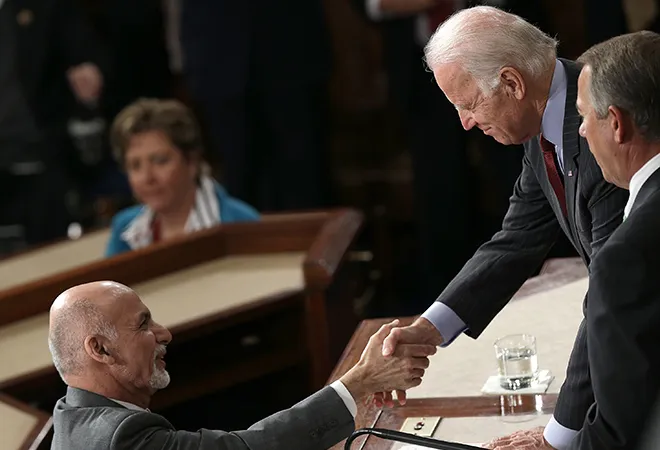
While a Biden presidency may reflect a large degree of continuity when compared with the outgoing Trump administration, in the way it perceives US foreign policy objectives in South Asia, there will be visible differences in its approach to the region. The most immediate US concern would be to respond to the fast-evolving political and security dynamics in Afghanistan, where ramped up violence in the face of ongoing “peace talks” indicates the Taliban’s intention to use violence as a leveraging tool to retain its preponderance in negotiations. Even as Biden backs the Afghan peace process, he favours a more gradual and ‘responsible’ withdrawal of US troops from Afghanistan, as well as maintaining a reduced military presence focused exclusively on counterterrorism operations, citing persisting security threats to the US as well as the Afghan state. A Biden administration may also emphasise on a stricter implementation of the US-Taliban Agreement of February 2020, which may underscore the conditional nature of the US exit as non-negotiable, and moderately ameliorate ties with the Afghan government.
Given the US’s dependence on Pakistan for the latter’s influence over the Taliban and, effectively, the unique ability to shape internal dynamics in Afghanistan, Biden may prefer to incentivise rather than pressurise Islamabad, in the immediate future, to pursue larger US strategic interests in the region. However, Biden’s historically strong ties with the Pakistani leadership (both civilian and military) notwithstanding, his administration will sooner rather than later seek to address the issue of existing terror networks operating out of Pakistan — after all, a ‘no tolerance’ policy towards terrorism was one of the cornerstones of his stated electoral agenda for South Asia.
Finally, the way Biden chooses to respond to the terrorism challenge emanating out of Afghanistan and Pakistan could have significant implications for India’s own strategic interests in the region. However, India will continue to remain an important strategic partner to the US, especially in countering an increasingly confrontational Chinese presence in the Indo-Pacific and pursuing common counterterrorism objectives in South Asia. Further, considering Biden’s proclivity to global diplomacy and cooperation as opposed to Trump’s isolationist stance and his emphasis on India and the US being ‘natural partners’, their bilateral cooperation will likely expand into more areas beyond security.
The views expressed above belong to the author(s). ORF research and analyses now available on Telegram! Click here to access our curated content — blogs, longforms and interviews.




 PREV
PREV


